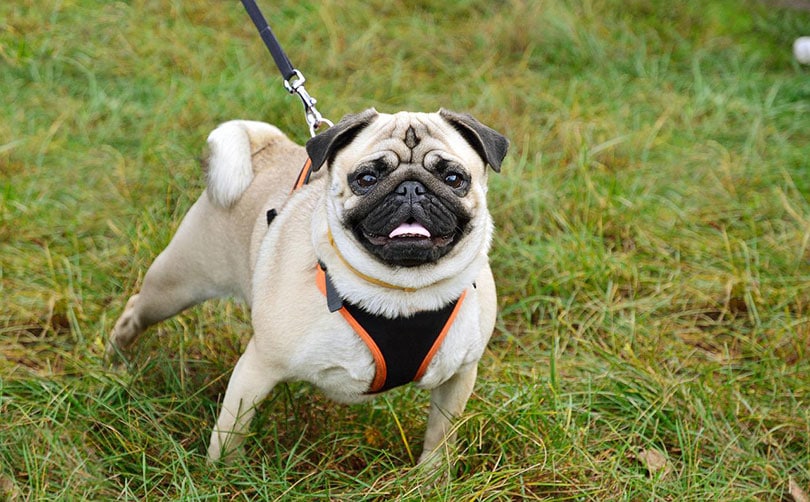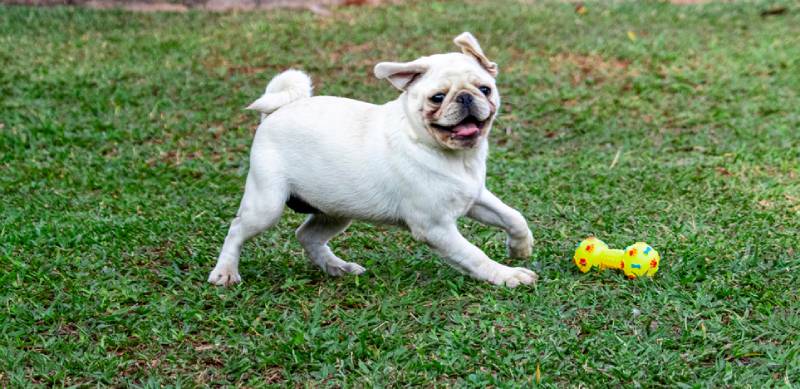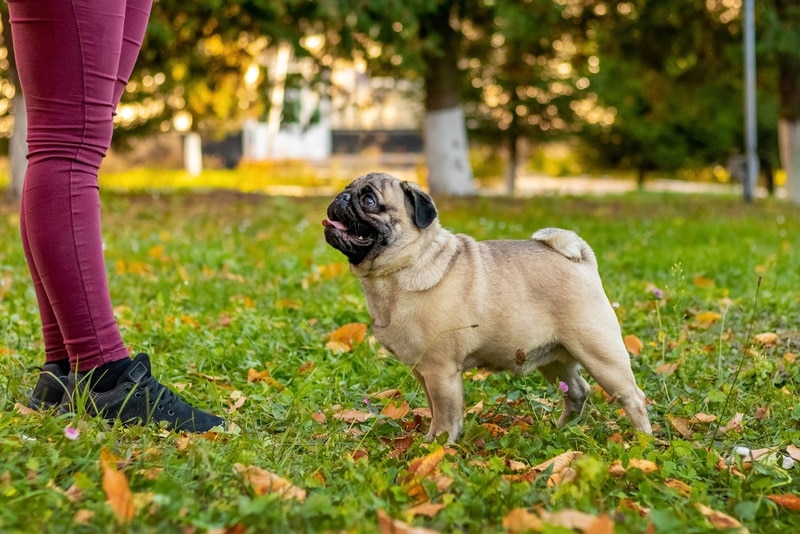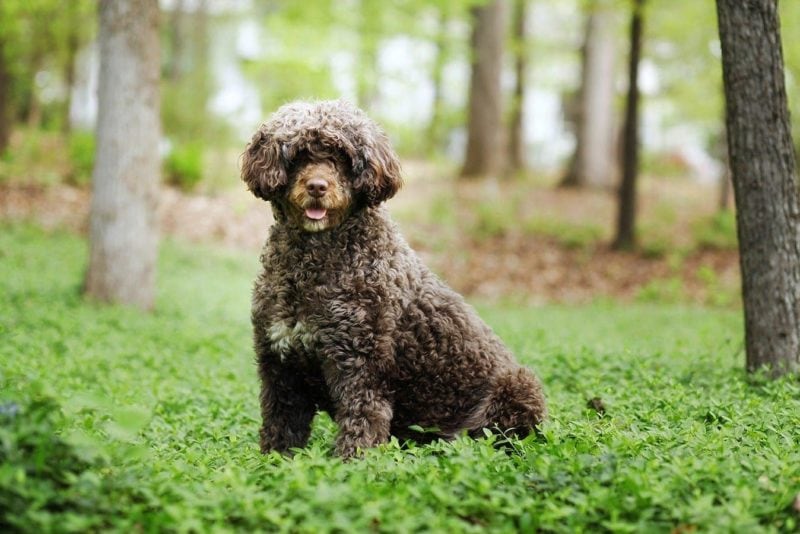Do Pugs Bark a Lot? Reasons & Helpful Tips
By Adam Mann
Updated on

While all dogs bark, sometimes our living situations aren’t ideally suited for a yappy pup. But the good news is that if you’re interested in getting a Pug, they are a relatively quiet breed. Like all dogs, they will bark at times, but they’re far from the noisiest dogs out there.
But when a Pug does bark, how loud are they, and what should you do if your Pug does tend to bark more than they should? We’ll break it all down for you here.
How Loud Are Pugs?
While Pugs don’t bark a ton, that doesn’t mean they won’t make much noise when they do bark. A Pug’s bark isn’t going to sound like it came from an extremely large dog like a German Shepherd, but it’s not going to sound like it’s coming from a tiny dog either.
Pugs have a medium-pitched bark, so if you want a smaller dog but don’t want to deal with the high-pitched barks, a Pug might be the perfect choice!
The 6 Tips to Help Stop Your Pug from Barking
Just because the Pug usually doesn’t bark a ton doesn’t mean you can’t end up with a yappy Pug. But if that happens to you, what can you do about it? Below, we’ve highlighted a few different tips and tricks you can use to help reduce the amount your Pug barks.
1. Exercise
One of the best ways you can get your Pug to bark a little less is to wear them out. While you need to be careful just how much you exercise a Pug because of their physical features, a little exercise goes a long way with them. Take them out for a walk or two throughout the day and it’ll wear them out, leaving them with less energy to bark about everything!

2. Socialization
If your dog knows how they should act around other people and dogs, they’re less likely to start barking every time someone new comes around. If you get your dog around other people and other dogs quite a bit, it won’t feel like such a big deal either, and they won’t feel the need to bark every time they see someone new.
3. Toys & Puzzles
Not only does your Pug need physical stimulation, but they need mental stimulation too. They need something to exercise their brain, and puzzle ball toys and other similar activities are a great way to do this. Training your dog can wear them out mentally, and since you can work on training them to stop barking, this would be a win-win!

4. Use Soothing Sounds
If you’re heading out for the day, putting on some background noise that helps calm down your Pug can help keep them from barking. Music or other types of background noise, like the television, are excellent choices.
Not only can the sound itself help calm down your Pug, but it’ll make it harder for them to hear outside noises to respond to.
5. Training
One of the most effective ways to get your Pug to stop barking when they shouldn’t is to teach them the “quiet” command. But you can’t jump straight into this command. You need to get your dog to recognize their name, then you need to take a step back and consistently train them.
If you can’t master it on your own, there’s nothing wrong with seeking out a professional dog trainer to help you out.

6. Ignore the Barks
If your dog is barking to get you to do something and you do it, you’re rewarding the negative behavior. The only way to get the barking to stop is to ignore it. This can be a bit frustrating if your dog is barking just to get your attention, but even then, it’s best to ignore the barking.
When they aren’t getting what they want, they should take a step back and limit the barking in the future.
Final Thoughts
The Pug isn’t the noisiest dog out there, but that doesn’t mean they’ll never bark. In fact, you can’t get mad if your Pug only barks some, and you can’t expect them to never bark. They’re still dogs, and barking is just part of what they do, but that doesn’t mean you need to let them bark non stop all the time, either.
See also:
Featured Image Credit: oleg_mit, Pixabay











